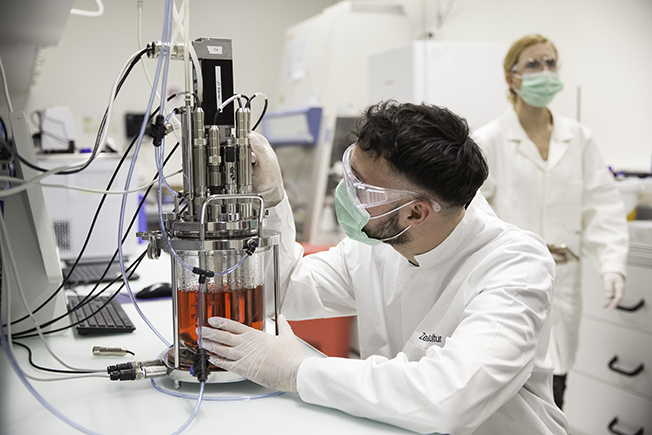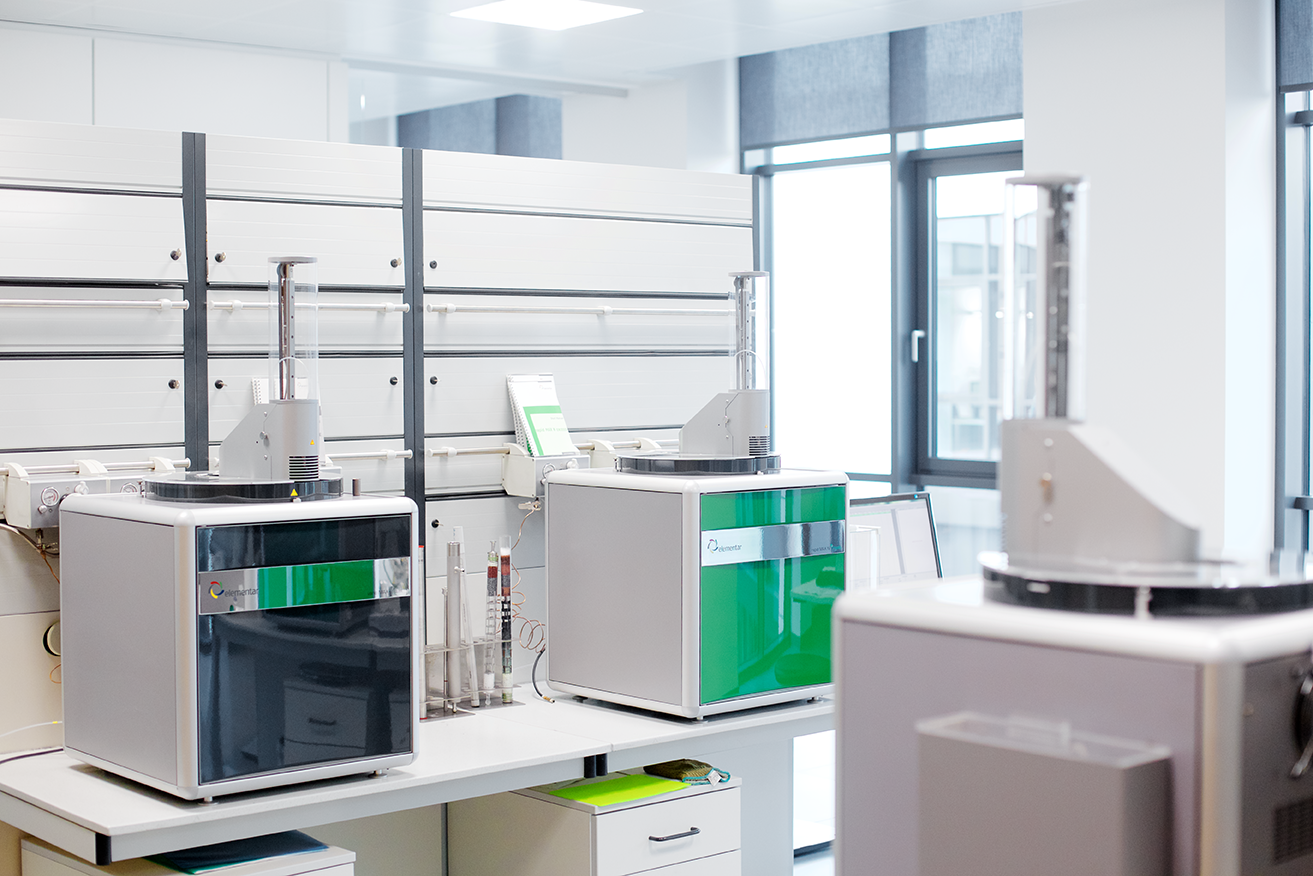

How a problem-solving precision fermentation startup plans to scale
Driven by a personal back-story, Ali Osman explains that his company, PFx Biotech, is well on the way to commercializing speciality proteins – beginning with solutions designed to benefit babies around the world
Ali Osman was first introduced to precision fermentation during his PhD in food and nutritional science at the University of Reading, UK. “We were using precision fermentation to manufacture enzymes to produce prebiotic oligosaccharides, whose end products (in the form of nutritional supplements) have now been on sale in the UK for more than a decade,” he recalls. This initial exposure clearly captured his interest. Osman launched a successful career at firms such as Arla Foods, DSM, and Novozymes, where he focused on the development of new enzymes and protein solutions. But, in 2022, he ditched his corporate career to co-found PFx Biotech, a Portugal-headquartered startup developing specialty proteins produced via precision fermentation.

“There were two driving factors behind this move into the startup space, both of them personal,” Osman explains. “The first is the alarming link between greenhouse gas emissions, climate change, and animal-based protein production. I couldn’t ignore this any longer. The second is that, while building my career, I also became a father, and discovered that my youngest son was allergic to the proteins found in cows’ milk. At that point, I felt I needed to capitalize on my previous knowledge – both academically and industrially – and do something that can have a positive impact not only on the environment, but also on the millions of babies and children that suffer from this allergy.”
Formula for success
Alongside those altruistic aims, Osman quickly realized he’d hit on what he describes as a great niche market for his specialty proteins. “If you look historically at infant formula, the initial versions were basically protein powder,” he explains. “And if you look at the proteins within cow’s milk, 80% is casein, 20% is whey proteins. Now that composition doesn’t exist in human milk; in fact, it’s pretty much the opposite. That composition meant that babies being fed exclusively on milk powder were likely to develop obesity later in life. So, over the past several decades, there has been a growing trend to try and make infant formula closer in composition and functionality to human milk. Today, you can find infant formula with human milk oligosaccharides (a type of carbohydrate) on sale.
“And the fact we at PFx Biotech and a few other startups in the space are embarking on a journey to produce human milk proteins and add those as the next wave of ingredients to infant formula is a huge contribution to that goal of bringing infant formula closer to human milk,” believes Osman.
The milk market
However, moving beyond this primary application, what does Osman think about the possibility of using precision fermentation to create customized protein blends for various other dietary needs and age groups? “If you just consider the properties of proteins found in human milk – the likes of alpha lactalbumin, lactoferrin, and osteopontin – they have lots of very interesting viral activity and health-promoting properties,” he continues. “And you can already find applications of these proteins in market segments outside infant formula. If you take lactoferrin, as an example, around 65% of the lactoferrin produced is used globally in infant formula, but the rest is finding applications in nutraceuticals, elderly nutrition, and so on. I think there are big opportunities. It will just take time to develop the market and mature the technology.”
As you scale up, you may encounter new challenges, but we are continually assessing all necessary criteria at all stages as we scale

Following on from this, Osman does acknowledge that – as ever in alt proteins – scalability is key to future success. “That’s the most important challenge that we, and of course others, face. These are undoubtedly premium solutions in terms of their contribution to reduced carbon emissions, and the fact they are very sustainable and environmentally friendly. But you want to create a profitable, scalable business so price parity becomes the headline issue.”
Having this at the forefront of his commercialization efforts has stood Osman in good stead so far. He reports that one of the first goals he had when he started the firm was to achieve price parity from the moment his product hit the market. “And we’ve succeeded in that already, in confirming the commercial viability of our first protein,” he says proudly. “If our first protein is produced at an industrial scale, we can make profit.”
That’s a bold statement, given that this first protein isn’t yet on the market, but Osman has great confidence in his technology and its ability to scale to mass production. “Of course, as you scale up, you may encounter new challenges, but we are continually assessing all necessary criteria at all stages as we scale,” he says. “We look at strain, robustness, functionality, characterization properties, and then the application of proteins in the end product.”
Healthy competition
As well as the technical side, Osman is passionate about the business side of operations, too. And he welcomes a bit of competition: “We’re pleased to see competitors in the space, because that shows that the market is there, as does the interest we observe from larger players in the industry. A rising number of operators who share the same sort of vision in terms of less reliance on animal-based food is a positive thing,” he feels.
But Osman is also very quick to note how his own solutions have the edge. “Several things set us apart, including the fact we have exclusively licensed our IP, which is one of our assets in reaching commercial viability for proteins,” he reveals. “We believe that in the medium or long term, that will mean a more sustainable and profitable business for us. The second advantage is what we do with a protein after we’ve produced it. I cannot disclose more because that’s the subject of an IP application right now. But besides that, later on, when products start to hit the market, there will be a great deal of differentiation among companies on the commercial strategy – so the call to market, the sales channels that you will execute within your commercial strategy, and so on. We have detailed and ambitious plans on this front.”
Amazing achievement
This entrepreneurial spirit has been fostered along the path of producing incredible technical results on what, for the biotech sector, can accurately be described as a shoestring budget (or “with the minimum possible funding” as a delighted Osman declares). PFx Biotech’s first protein was developed, the strain was engineered, and it moved to scaleup on less than €500,000 – which Osman rightly describes as “an amazing achievement”.

And although he’ll gladly accept funding from private investors – and is a genuine proponent for greater collaboration between all stakeholders across the food sector who share the same aims – there’s one part of the commercialization journey that Osman believes is best handled independently at first. “Of course we are in discussions with much bigger players in the sector, but in the beginning, we prefer to take the initial steps on our own,” he explains. “That doesn’t mean we’re closed off to collaboration – quite the opposite. We fully embrace open innovation and are always open to partnerships. But our early work has been carefully structured in a way that requires a focused, internal approach before expanding outward.”
For more information visit www.pfxbiotech.com
If you have any questions or would like to get in touch with us, please email info@futureofproteinproduction.com


%20ILVO%202.jpg)

.png)

